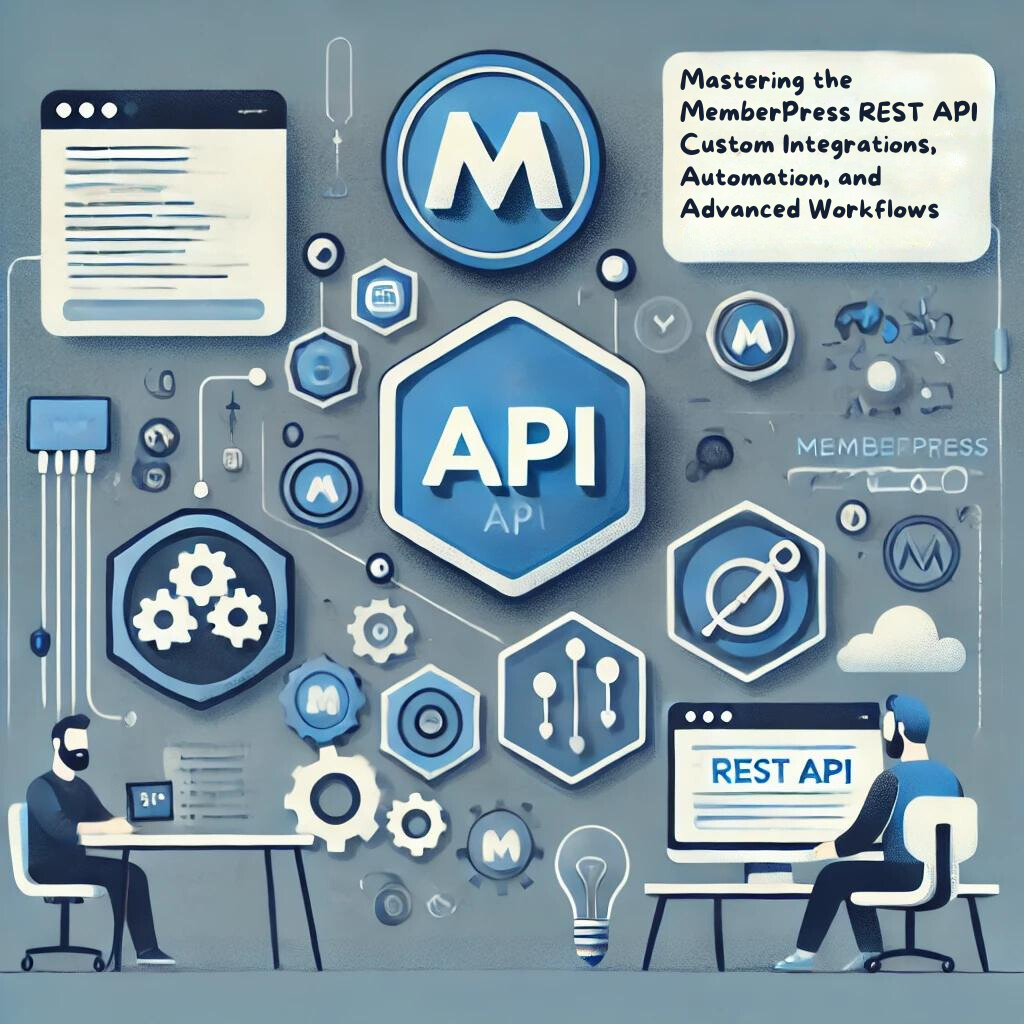🔑 Key Use Cases for MemberPress REST API
🔼 Fundamental Concepts of the MemberPress REST API
💡 Examples and Metaphors: Understanding MemberPress REST API Use Cases
📚 Expanding Your Knowledge of MemberPress REST API and Beyond
🧪 Tests and Simulations: Exploring the MemberPress REST API Hands-On
➕ Taking MemberPress REST API to the Next Stage
📚 Advanced Concepts for MemberPress API and Integrations
🧪 Tests and Simulations: Creating Custom API Endpoints, Testing OAuth Workflows, and Advanced Payment Automations
1. 🔧 Creating Custom API Endpoints
Let’s dive into some hands-on tests and simulations! We’ll cover:
- Creating custom API endpoints in WordPress for MemberPress.
- Testing OAuth 2.0 workflows for secure API authentication.
- Building advanced payment automations using Stripe.
These examples will help you extend your site’s functionality, secure your API, and automate complex payment flows.
MemberPress relies on the WordPress REST API. You can extend the default capabilities by adding custom API endpoints to handle specific workflows, such as retrieving member statistics, accessing premium content, or modifying user data.
Example: Create a Custom API Endpoint to Retrieve Active Members
Steps:
- Create a Custom Plugin:
- In your WordPress installation, create a new plugin to add custom API functionality.
- Go to
wp-content/plugins/, and create a folder calledcustom-memberpress-api. Inside that folder, create a file namedcustom-memberpress-api.php.
- Add the Following Code:
<?php /* Plugin Name: Custom MemberPress API Description: Adds custom API endpoints to retrieve active members. */ // Register the custom API endpoint on plugin activation add_action('rest_api_init', function() { register_rest_route('custom_mp/v1', '/active-members', array( 'methods' => 'GET', 'callback' => 'get_active_members', 'permission_callback' => '__return_true', )); }); // Define the callback function that returns active members function get_active_members() { global $wpdb; $active_members = $wpdb->get_results("SELECT * FROM {$wpdb->prefix}members WHERE status = 'active'"); return new WP_REST_Response($active_members, 200); }- This code defines a new REST API route:
/wp-json/custom_mp/v1/active-members. - The
get_active_members()function retrieves all active members from the WordPress database and returns them in the response.
- This code defines a new REST API route:
- Activate the Plugin:
- Go to your WordPress admin dashboard, navigate to Plugins, and activate the “Custom MemberPress API” plugin.
- Test the Custom Endpoint:
- Use Postman or cURL to test your new endpoint.
- Send a GET request to:
https://your-site.com/wp-json/custom_mp/v1/active-members
Expected Response:
You should receive a JSON response listing all active members:
[ { "id": 1, "username": "john_doe", "email": "john@example.com", "status": "active" }, { "id": 2, "username": "jane_doe", "email": "jane@example.com", "status":"active" } ]
Customization Ideas:
- Add Parameters: You could extend the endpoint to allow filtering by membership levels or dates, such as retrieving members who joined in the last 30 days.
- Permissions: Replace
__return_truewith a custom permission callback to ensure only authenticated users can access the endpoint.
